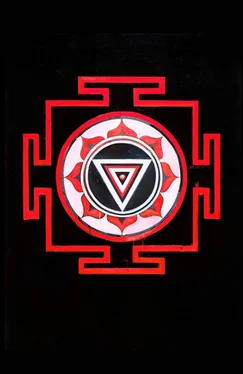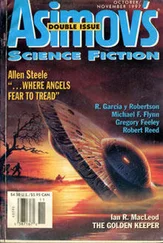‘He’s right,’ Little Tony added. ‘This problem with the Scorpion Company, for example. That’s what gives chutiyas like this landlord bahinchudh the idea that he can go past us, to create his own little army.’
‘It’s not a Company ,’ Sanjay spat back at them. ‘Those Scorpion fucks haven’t been recognised, not by any of the other Companies in Bombay. It’s a gang. They’re just North Bombay guys, trying to squeeze into the south. Call it what it is, man, a cheap little gang.’
‘Call it what you will,’ Mahmoud Melbaaf said softly, ‘it is still a problem. They have attacked our men in the street. Not a kilometre from here, two of our best earners were hacked with choppers, in the middle of the day.’
‘That’s right,’ Faisal added.
‘That’s why we have our Afghan brothers on duty,’ Mahmoud Melbaaf continued. ‘The Scorpions have been trying to cut into our areas at Regal and Nariman Point. I kicked them out of there, but there were five of them, and if Abdullah hadn’t been with me it would’ve gone the other way. My name alone, and yours, too, Sanjay, doesn’t scare them. And if Little Tony hadn’t cut that dealer’s face last week, they’d still be selling drugs outside KC College, fifty steps from your door. If that’s not a problem, I haven’t seen one.’
‘I know,’ Sanjay replied more gently, glancing quickly at the boy, Tariq.
The cold stare in the boy’s eyes never wavered.
‘I know what you’re saying,’ Sanjay said. ‘Of course I know. What the hell do they want ? Do they want a war? They really think they can win that? What do they want, those fucks ?’
We all knew what the Scorpion Gang wanted: they wanted it all, and they wanted us dead, or gone.
In the silence that followed his rhetorical question I looked at the faces of the Council members, trying to judge their mood, and their willingness to fight yet another turf war.
Sanjay lowered his eyes, cold eyes in a sensitive face, as he considered the options open to him. His prudent instinct, I knew, was to avoid a fight and negotiate a deal, even with predatory enemies like the Scorpions. What mattered to Sanjay was the deal, not how, or where, or who was on the other end.
He was brave and ruthless, but his first impulse always led him to buy his way out. It was Sanjay who’d put the boardroom table in the Council room, and I realised, staring at his puzzlement and indecision, that the table wasn’t an expression of pride or self-aggrandisement: it was a visible representation of his true nature to negotiate, and seal the deal.
The seat next to Sanjay, on his right, was always empty in memory of his childhood friend Salman, who’d died in battle during the last big power struggle against a rival gang.
Sanjay had spared a survivor of that defeated group. It was the man he’d spared, Vishnu, who’d built up the Scorpion Gang, and now threatened Sanjay himself.
Sanjay knew that the men on his own Council who’d disagreed with that clemency, and who’d insisted that the man had to be killed and the book closed on the matter, would see the current trouble as a vindication of their views, and a weakness of leadership.
As I watched him, Sanjay’s hand slowly drifted to his right across the polished surface of the table, as if searching for the hand and the warrior advice of his dead friend.
To Sanjay’s right, beside the empty chair, was Mahmoud Melbaaf, the slim, watchful Iranian whose serene stare and equable temperament never faltered, no matter how fierce the provocation.
But his calm was the child of sadness, and he never laughed, and almost never smiled. Some great loss had struck at his heart and settled there, smoothing out peaks and troughs of emotion, as wind and sand smother mountains in the desert.
Beside Melbaaf was Faisal, the ex-boxer, the almost-champion. A crooked manager, who stole all Faisal’s competition earnings, had driven the knife deeper by running off with his girl. Faisal killed him, and the girl left the city, never to be seen again.
Emerging from eight years in prison, with instincts as quick and deadly as his fists, he’d worked as an enforcer for the Sanjay Company for several years. He had a reputation for rapid resolutions of debt problems. Although his skills as a boxer were sometimes exercised, very often his scarred face and fierce stare were enough to provoke debtors into finding the necessary funds.
After the last big turf war, which left a few places on the Council empty, Faisal had been rewarded with a permanent seat.
Next to Faisal, leaning in close to him, was his constant companion, Amir. With his large head, round and blunt as a river stone, scarred face, luxuriant eyebrows and elaborate moustache, Amir had the mysterious allure of a South Indian movie star.
A notoriously good dancer, despite his considerable paunch, he recounted stories in a bellowing basso, played jokes on everyone but Abdullah, was the first to hit the dance floor at any party, and the first into any fight.
Amir and Faisal controlled the drugs in South Bombay, and their street dealers brought in one quarter of all the Company’s profits.
Sitting close to Amir was his protégé, Andrew DaSilva, a young street gangster who’d been appointed to the Council as a concession to Amir. He’d taken control of the prostitution and pornography rackets, captured from the defeated gang in the last turf war.
The fair young man, with light brown hair and camel-coloured eyes, had the illusive innocence in his bright smile that cruelty fashions from fear, and cunning. I’d seen the mask fall. I’d seen the snarl of the whip in his eyes. But others didn’t seem to see it: his reflexive smile restored the disguise quickly enough to save him from the distrust that his true nature should’ve provoked in others.
And he knew that I knew. Every time he looked at me, there was a question in his eyes. Why can you see me?
We’d come close to violence, DaSilva and I, and we both knew that one day, one night, in one situation or another, there’d be a head count that would leave one of us behind.
Looking at him then, at that Council meeting, I was sure that when it did finally come, Andrew wouldn’t be alone: he’d be leaning, hard, on the strong, wide shoulders of his friend Amir.
Next around the table was Farid, known as Farid the Fixer, whose devotion to Khaderbhai had rivalled that of grizzled Nazeer. Farid blamed himself for Khaderbhai’s death in Afghanistan, convincing himself, despite our assurances, that if he’d been there with us in the snow, Khaderbhai might’ve survived.
His guilt and despair drove him to recklessness, but it also pushed him into a deeper friendship with me. I’d always liked Farid. I liked his furiousness, and his willingness to run into the storm: the shadow that fell before rather than behind his every step.
As I looked at him, that day, in the long pause while Sanjay decided what action to take about rogue landlords, unlicensed thugs, and predatory Scorpions, Farid looked up at me with embers of sorrow burning his eyes. For a moment I was back there, on the snow-scattered mountain, staring into the dead, snow-stone face of Khaderbhai: the man Farid and I had both called father, father, father.
The last man at the table before Hussein and Abdullah coughed politely. His name was Rajubhai, and he was the controller of currencies for the Company. A fat man, who carried his sumptuous girth with ingenuous pride, Rajubhai had the look of an elder from a distant village, but he was a born Mumbaikar.
A splendid pink turban covered his head, and he wore the traditional white dhoti beneath his knee-length sleeveless serge tunic. Never fully relaxed beyond the serene boundaries of his currency counting room, Rajubhai fidgeted in his place, glancing at his watch whenever Sanjay wasn’t looking.
Читать дальше












